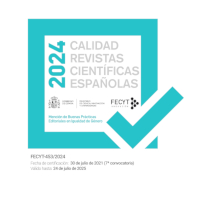The politics of discourse in Thomas More's "Utopia"
DOI:
https://doi.org/10.18172/cif.2220Abstract
Besides being the cornerstone of modern utopian fiction, Thomas More’s Utopia provides a paradigmatic example of a doctrinal text and a serio ludere in which questions related to the use of narrators (e.g., who speaks and for whom; on which diegetic level each speaker exists) are as important as the content of the doctrines being expounded. As happens in other towering works of the Renaissance (such as Miguel de Cervantes’s Don Quixote or Anne Bradstreet’s The Tenth Muse), the main text appears buried underneath a thick layer of epistles, poems, dedications, and recantations. The principal function of these paratexts is to give a satirical dimension to the description of the kingdom of Utopia. Just as important, the silencing of Utopia’s history reinforces the hypothesis that in More’s fiction, Raphael Hythlodaeus’s narrative works toward legitimating the fragile Tudor regime, with which it is ironically contrasted.Downloads
Download data is not yet available.
Downloads
Published
2013-07-15
How to Cite
Rodríguez García, José María. “The Politics of Discourse in Thomas More’s ‘Utopia’”. Cuadernos De Investigación Filológica, vol. 26, July 2013, pp. 81-87, doi:10.18172/cif.2220.
Issue
Section
Articles
License
The authors retain copyright of articles and authorize CIF the first publication. They are free to share and redistribute the article without obtaining permission from the publisher as long as they give appropriate credit to the editor and the journal.
Self-archiving is allowed too. In fact, it is recommendable to deposit a PDF version of the paper in academic and/or institutional repositories.
It is recommended to include the DOI number.
This journal is licensed under a Creative Commons Attribution 4.0 International License














